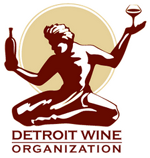Those who want to enjoy wine with their seder may be pleasantly surprised by the range of high-quality kosher wines now available to them. It wasn’t long ago that Manischewitz and similar sickly-sweet wines made from grapes like Niagara and Concord were the only kosher options.
First, what makes a wine “kosher?” Like the laws surrounding the preparation of kosher food, strict rules are followed in the production of kosher wines: grapes may not be picked from a vine until its fourth year; the vineyards must be left unharvested every seventh year — and no other crops may be grown in the fields; only Sabbath-observant Jews are allowed to work on the production of the wines; all equipment used in the winemaking process must be cleaned three times; all barrels must be new or used exclusively for kosher wines; and one percent of the wine must be discarded, in a nod to the 10% tithe.
While these rules have been tweaked over the years, their essential elements are centuries old. In fact, kosher wine laws are the oldest winemaking laws in the world. The kosher wine sector is one of the fastest growing in the wine industry. Kosher wine is being produced in countries including France, Italy, South Africa, Morocco, Australia, Chile, the United States and Israel.
Kosher wines are readily available in metro Detroit, with the best selection being offered at larger wine shops. Some high-quality kosher wine producers to look for include Baron Herzog, Hagafen, Yarden and Weinstock. While it’s highly unlikely it will ever cross any of our door steps, it’s interesting to note that there is a kosher wine creating big buzz in the wine world. The 2003 Covenant Cabernet Sauvignon out of Napa Valley has been deemed by wine critic Robert Parker “the finest kosher wine in the world.” Unfortunately, just 500 cases were released.
Jevon is a board member


Leave A Comment